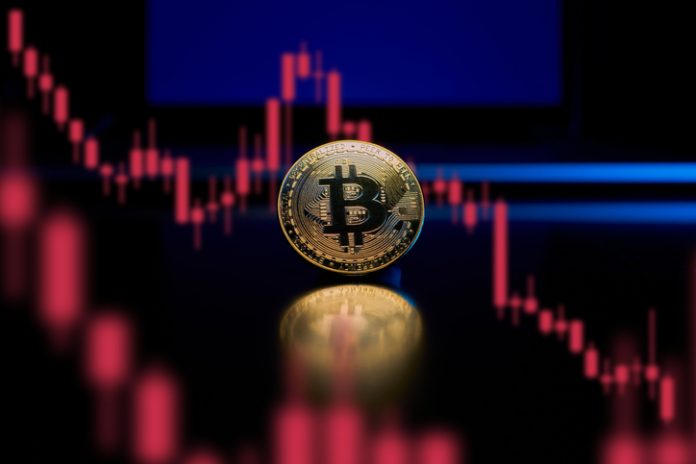For the past four months, the world’s attention has been tuned to the humanitarian crisis in Ukraine that has seen many lives and fortunes lost.
As President Putin remains determined to bring back Ukraine into the fold, the West and its allies have redoubled their efforts to undermine the so-called “military operation.”
War is never good for the economy. It only benefits a few. And as such, war tends to alter the economic landscape in ways that only specific situations can, such as a global recession, prolonged famine, and drought.
2022 has been a poor year for cryptocurrency in general, with several coins falling well of the pace in terms of gains. Instead, the market has been bearish, with several investments crashing pathetically in what has been the worst period for cryptocurrency since Bitcoin was launched in 2008.
While the downward trend in crypto cannot be directly linked to the war efforts in Ukraine, it has certainly impacted the world of crypto in several ways.
In this article, you’ll learn important tidbits about the Ukraine-Russia war, and its implications on cryptocurrency.
What are the origins of the war?
The origins of the Ukraine-Russia conflict go as far back as 1991 when Ukraine gained its independence shortly after the collapse of the former Soviet Union.
Since then, Ukraine has grown increasingly inclined to the West, specifically the EU and NATO.
On the one hand, Putin sees Ukrainians and Russians as one people and has long sought to undermine the sovereignty of the Ukrainian state.
In 2013, he successfully applied pressure on the then Ukrainian leader Viktor Yanukovych, urging him not to bring his country into the EU. The result was a series of protests that eventually led to the deposing of the president.
Afterward, Russia sized a prominent region of Ukraine, Crimea, triggering a conflict that claimed nearly 15,000 lives.
Putin officially launched a “military operation” to reunite the two nations in February. However, his initial efforts have been frustrated by the Ukrainians, who have had help from NATO and other Western Allies, including the UN. A series of sanctions on Russian oligarchs, assets, and companies soon followed.
However, it appears that it will take more than sanctions to detract a driven Putin from his goal, and his country seems well-placed to weather the storm in the long haul, expending as many lives and arsenal as is necessary to achieve his goal.
Economic impact
The economic impact of the conflict is well documented. Russia is a major global producer of steel, nickel, aluminum, oil, and natural gas. In addition, it controls about one-fifth of the world’s wheat trade.
On the other hand, Ukraine is a leading producer of sunflowers, wheat, corn, rapeseed, barley, sugar beet, and soya.
Since the start of the war, global oil prices have soared, as have the costs of consumer products and other vital commodities.
The place of crypto in the Russian-Ukraine conflict
In recent times, crypto has gained more public acceptance than ever before. Although not a legal tender in many parts of the world, it is now a key cog of its financial systems.
As a result, it is now an important aspect of the conflict. The war in Ukraine has destroyed many facilities and institutions, with the country’s economy lying in tatters.
Banks are closed, and there is little or no access to financial products and services like loans. Many have turned to cryptocurrency as a suitable alternative in these uncertain times.
In fact, the inherent attributes of cryptocurrency make it a valuable asset in times of war. Existing financial institutions have already limited the citizenry’s access to foreign currency and bank accounts.
There’s also the case of surveillance to consider. People are afraid of being monitored, and there’s an increasing need to carry out transactions without fear of censorship. In other words, people need the anonymity, and security that cryptocurrency offers.
Many humanitarian efforts to send aid to the war-stricken country have come in the form of crypto. Since the start of the war, roughly $100 million have been sent to Ukrainians.
In fact, the Ukrainian government continues to solicit crypto donations, collaborating with companies like Everstake, Kuna, and FTX.
Impact on crypto market regulations
The conflict marks the first time since El Salvador’s recent failed experiment by a country to open its arms to cryptocurrency legally.
The multiple donations and willing acceptance of the Ukrainian government of cryptocurrencies have spurred more crypto enthusiasts to intensify their efforts to propagate the crypto gospel.
As a result, there is more spotlight on crypto than ever before, as more people are educated on Blockchain technology and the potentials and benefits of cryptocurrency.
This trend has greatly contributed to the debunking of myths speculating the use of crypo in relation to criminal activity. Now, more people can see the good that crypto can do.
Market volatility in wartime
Immediately after Russia declared war on Russia, the Ukrainian President declared martial law in the country, temporarily suspending the civil rule. From then on, it became extremely difficult to transact with fiat currency.
Although more people are now inclined to invest in crypto than ever before, the market itself has been very volatile.
Just hours after the start of the invasion, Bitcoin’s value dropped by 8%, while altcoins like Silvana and Ethereum suffered similar fates.
As the war dragged on and the sanctions rolled in for Russia, Bitcoin’s price temporarily rose to $44,000. However, a bearish trend plunged the flagship token down to about $39,000.
Possible factors for this may include the steady liquidation of crypto assets by the Ukrainian government, even as the donations poured in. However, some experts have stated that the Ukrainian impact on the crypto market may have been exaggerated.
Nevertheless, crypto PR is at an all-time high, and there is genuine hope that its popularity will only continue to increase until it achieves global standard status.
On the other hand, there are speculations that the Russian government could also legalize crypto in a bid to find some buffer against the onslaught on the rouble.
In Europe today, Ukraine inadvertently leads the efforts to legalize cryptocurrency and make it publicly acceptable as legal tender.
Users can download Bitcoin wallets anonymously, generate addresses from alphanumeric strings or QR codes, send the hash to someone and receive funds in a matter of minutes.
However, it’s not necessarily straightforward for Ukrainians caught in the middle of the conflict to do crypto transactions. For one, it requires an internet connection. In a war-torn country that has suffered considerable damage to communications infrastructure, it’s not easy.
Also, it can be quite the steep learning curve for newbies. In such an unstable environment, people might not be able to concentrate for long enough to master the basics.
Given the present market volatility, it’s not a very palatable situation.
Conclusion
It’s important to learn the basics of Blockchain technology, such as what is DeFi, DAO, Metaverse, and other web 3.0 technologies.
Platforms like CoinStats can also be a great alternative for newbie investors looking for a comprehensive way to manage their portfolios, make profit and learn at the same time.
Disclaimer: This article contains sponsored marketing content. It is intended for promotional purposes and should not be considered as an endorsement or recommendation by our website. Readers are encouraged to conduct their own research and exercise their own judgment before making any decisions based on the information provided in this article.



























![“Does Everyone Hear Me OK?”: How to Lead Virtual Teams Effectively iStock-1438575049 (1) [Converted]](https://www.europeanbusinessreview.com/wp-content/uploads/2024/11/iStock-1438575049-1-Converted-100x70.jpg)




